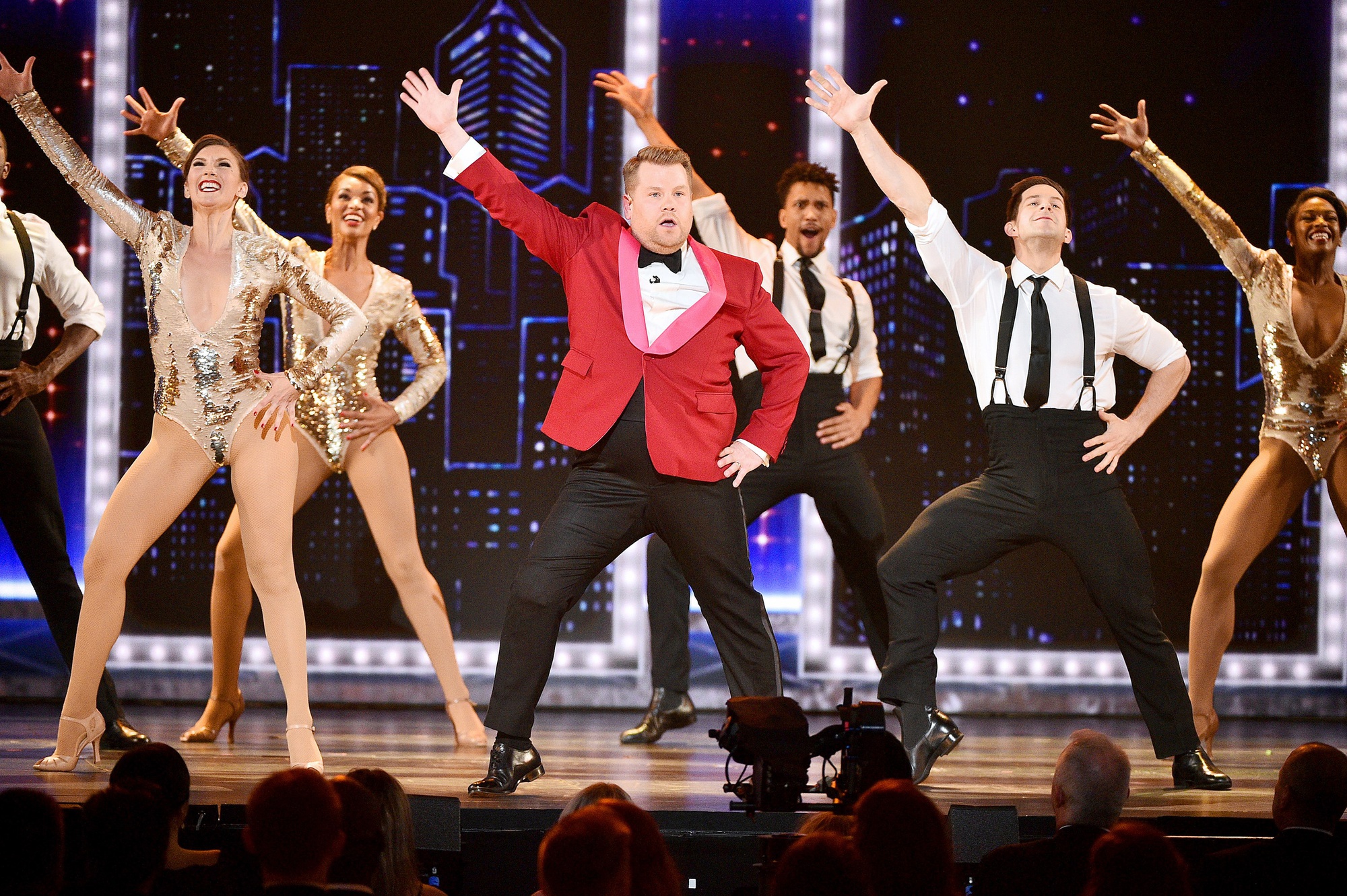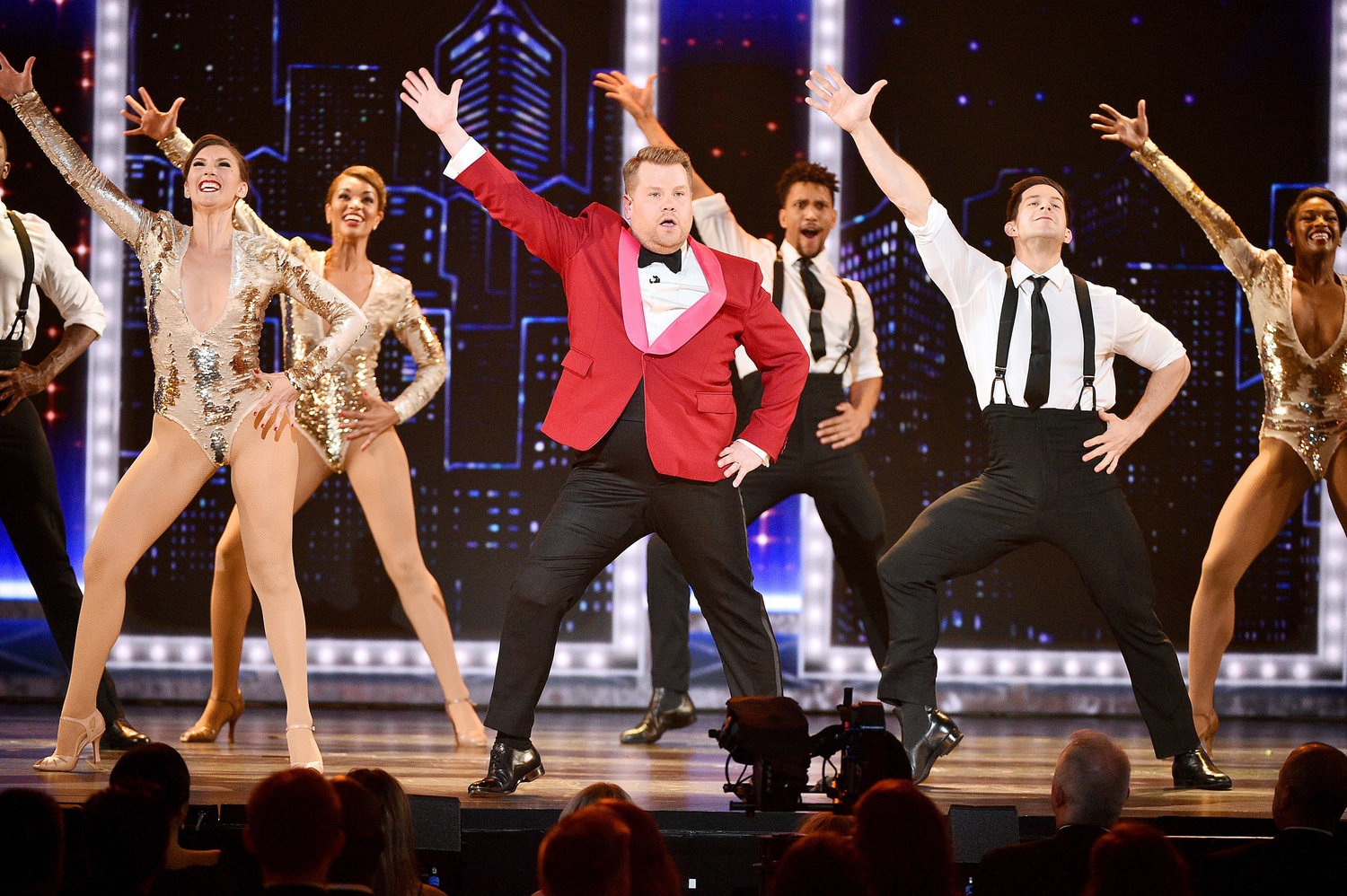
News
Pro-Palestine Encampment Represents First Major Test for Harvard President Alan Garber

News
Israeli PM Benjamin Netanyahu Condemns Antisemitism at U.S. Colleges Amid Encampment at Harvard

News
‘A Joke’: Nikole Hannah-Jones Says Harvard Should Spend More on Legacy of Slavery Initiative

News
Massachusetts ACLU Demands Harvard Reinstate PSC in Letter

News
LIVE UPDATES: Pro-Palestine Protesters Begin Encampment in Harvard Yard
Fewer People Are Watching The Tonys: Does it Matter?


As far as opening numbers go, the past few years’ Tony awards have been pretty hit or miss. Josh Groban and Sara Bareilles opened with an absolute banger of an “ode to the losers” in 2018, Kevin Spacey with a stale medley of the 2017 musical nominees that certainly has not aged well, and James Corden with a heartwarming anthem of encouragement to theater kids in 2016. The opening numbers have to strike this balance between self-aware, inside-joke humor (“just you wait, just you wait,” Corden said to the cast of “Hamilton” as they pretended to reach for a Tony) and a reaffirmation of “the power of theater” that makes for a pretty entertaining spectacle — but only if you’re the type of person who knows (and cares) that Lin-Manuel Miranda named his son after the crab from The Little Mermaid.
The 73rd Annual Tony Awards, held this past Sunday at Radio City Music Hall and hosted again by James Corden, were no different. Corden has a surprising level of stamina for a middle-aged British talk-show host (at one point, he did the splits on stage (sort of)), and used that energy to lead a spectacular 10-minute performance with more singing, dancing, comedic interludes, and pop culture references than previously thought possible — a celebration of the magic of live musical theater. The number opened with a shot of Corden sitting on a couch, singing dejectedly, “You watch Netflix, Hulu, Amazon / Until you can’t remember which program is on.” About halfway through, Corden jabbed, “Here, we don’t charge by a monthly billing / Nobody’s Broadway and chilling.” Eventually, a wall of actors emerged from behind a curtain, belting, “We are the heirs of a grand tradition / The stage is our noble vision.” It seems, from the outset, that this year’s Tonys sought to reckon with the theater’s greatest existential threat — television (in case it wasn’t clear enough, the next belted lyric is “we are better than television.”)
It is often said that we are in a golden age of television: shows with high production values, (more) diverse representation, and engaging, topical, novel stories are more abundant than ever. It feels like we barely had time to mourn the end of “Game of Thrones” before we realized we were already two episodes behind on “The Handmaid’s Tale.”
It is seldom said, however, that we are in a golden age of theater, though I think it’s just as — if not more — true. At the risk of sounding like a spokesperson for the American Theater Wing, this year’s Tony Awards demonstrated that American theater is as engaging, diverse, and relevant as the best that HBO and Amazon Prime have to offer.
Hadestown, the adaptation of the Greek myth of Orpheus and Eurydice, was the “Hamilton” of the night; it not only came in with 14 nominations and left with 8 wins (including Best Musical), but also managed to imbue a dated story with a modern sound — a mashup of Ancient Greek myth and New Orleans jazz that serves as a testament to musical theater’s creativity. “The Ferryman” was another oft-read name, taking home four awards (including best play), followed by director Daniel Fish’s revival of Rodgers and Hammerstein’s musical “Oklahoma!” “Tootsie” and “The Cher Show” (original musicals) and “Ink” (straight play) each took home two.
An awards show in 2019 without socio-political messages and jabs would hardly be possible, and the Tonys were no exception. Rachel Chavkin, winner of Best Director for Hadestown, called the lack of representation of women and artists of color on Broadway “a failure of imagination by a field whose job it is to imagine how the world could be.” Bryan Cranston, winner of Best Leading Actor in a Play for portraying a news anchor in “Network” ended his speech by declaring, “The media is not the enemy of the people. Demagoguery is the enemy of the people.”
The most moving speech of the night, however, came from Ali Stroker, who won Best Featured Actress in a Musical for the “Oklahoma!” Revival and was the first wheelchair user to be nominated for and win a Tony. “This award,” she told an absolutely ecstatic crowd, “is for every kid who is watching tonight who has a disability, who has a limitation or a challenge, who has been waiting to see themselves represented in this arena. You are.”
As rousing as the acceptance speeches were, they were not why I watched the Tonys. It wasn’t the long lists of thank yous to people I’d never heard of that got me through the three-hour ceremony — it was the performances. Actors singing and dancing not on a soundstage in Georgia surrounded by green screens, but on their home turf: a stage, awash with lights, in front of a live audience. A clever, wacky medley from Beetlejuice.” A wholesome, colorful, toe-tapping bop from “The Prom.” A masterful, charged spiritual from “Choir Boy.”
Just as Corden put it in that opening number, this is what theater is about: “To gaze at a stage with performers like these...it’s so indescribably pleasant / You’re in the moment and so totally present.” Despite this homage and many others like it, a sense of insecurity seemed a prominent undercurrent of the show, one that manifested in jabs at television and constant self-reaffirmations of the importance of theater. Sure, these fears are justified — viewership for the Tonys has declined over the past few years, this year reaching an all-time low of 5.46 million viewers — but also often distracting and, frankly, boring (for example, when introducing the nominees for Best Revival of a Play, Michael Shannon delivered a teleprompted remark that seems to be taken straight out of a drama textbook: “These revivals brought theatrical vitality to socially conscious works from previous eras, enabling new audiences to appreciate their contemporary relevance.” Don’t worry, he seemed just as bored reading it as I was listening to it).
Why does every teleprompted interlude need to extol the wonders of theater? Why not just let the performances speak for themselves? The Tonys should spend less time talking about how great theater is and more time showing — because when they do, when they gather Broadway’s most talented performers on that stage and let them simply do their thing, there is no HBO drama or Netflix special that can come anywhere close.
—Staff writer Kalos K. Chu can be reached at kalos.chu@thecrimson.com.
Want to keep up with breaking news? Subscribe to our email newsletter.
